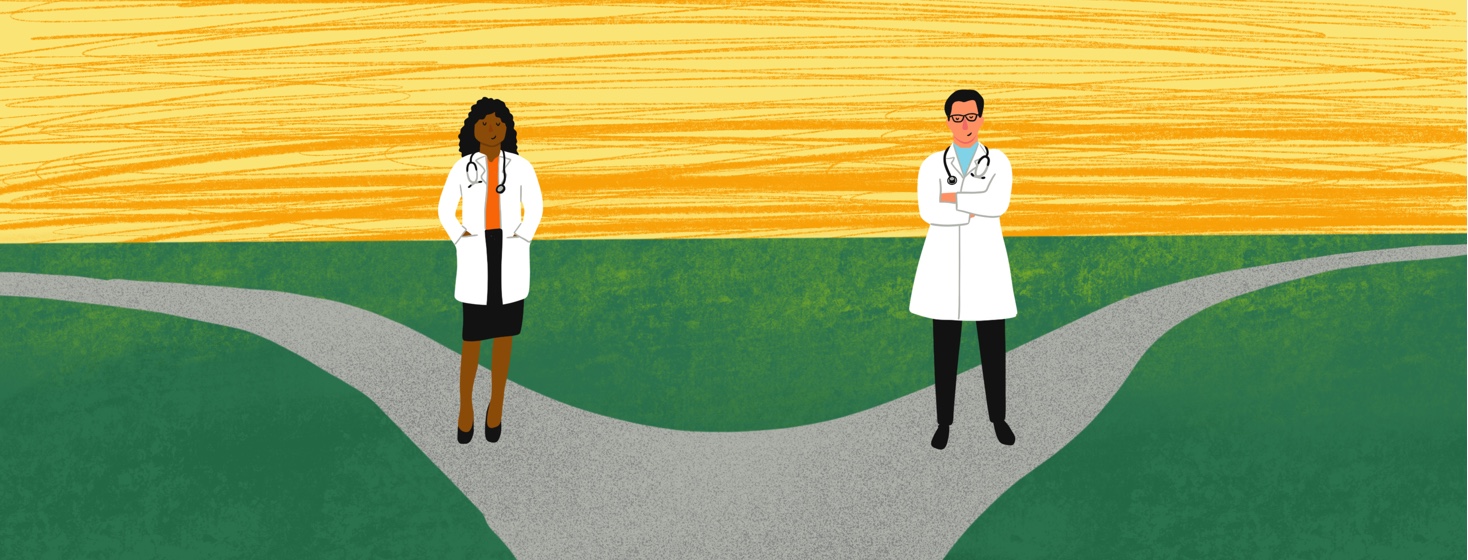Am I Hurting My Healthcare Team's Feelings by Getting a Second Opinion?
The worst thing as a nurse is when I hear patients struggle on whether to get a second opinion or not. Their struggle is not due to the what ifs of possible differences of opinions from two doctors. The struggle is the lack of support from their primary oncologist.
Your primary oncologists' treatment plan
I personally saw it when my sister, Sarah, was diagnosed with stage 3 breast cancer. Because I am well versed in the oncology setting, I understand that a triple-negative breast cancer diagnosis is nothing to take lightly. My sister started her treatment at a local, regional hospital – 11 miles from Dana Farber Cancer Institute. Her oncologist was wonderful. Sarah felt at ease every time she met with her team.
Getting a second opinion is not wrong
However, as she started treatment, her blood counts took a dive into the red zone which meant “no treatment given on this day.” This pattern continued and when I told Sarah that I think it would be best for her to seek a second opinion at Dana Farber, one of the best oncology institutions in the country, she became silent. Her silence and hesitation were due to the fact that she didn’t want to go behind her oncologist’s back and possibly hurt her feelings. I laughed and because she’s my sister I was able to reassure her in a sarcastic way that there would be no hard feelings on her end – you are her patient, not her best friend.
I remember Sarah calling me crying after she got off the phone with her oncologist, telling her she was seeking a second opinion. She was made to feel that she was doing something wrong.
This is wrong. Sarah’s second opinion at Dana Farber was a game-changer, in my honest opinion. Her oncologist at Dana Farber did not agree with her original treatment, assured her that she SHOULD NOT be missing multiple treatments and ended up changing her treatment.
A nurse's perspective on getting second opinions
So the question is, as a nurse, what is my role with second opinions? It is not my job to discuss with patients whether or not they are seeking or interested in a second opinion. Personally, I believe that is outside my realm of nursing. However, when asked by a patient on how to go about a second opinion OR my advice on IF he/she should consider a second opinion, I will give the same advice I gave my sister 5 years ago. Just do it. And I’m 100% sure that if you have an oncologist who has your best interest at heart they will say the same thing. This is not about their feelings, their intelligence or ego. This is about your life.
An oncologist's job is to empower their patients
Being part of an interdisciplinary team, it’s important to always continue to talk to each other and if there is a conversation I have had with a patient in the treatment room that I feel a physician should know about I make sure to relay that information. I am lucky to be able to work with a group of oncologists and nurses who empower their patients to take control (in areas where they can) and become resources in all stages of treatment.
Be active & ask questions
The biggest takeaway from this article is to look at your options when you are diagnosed with cancer. Do your research. Look at who your oncology institution collaborates with. Do they have access to clinical trials? How far away are you from bigger oncology institutions such as Dana Farber Institute, Sloan Kettering, Mt Sinai, Mayo Clinic and does your oncology office have any connections with them? And of course, surround yourself with supportive people – your family, friends, coworkers and oncology team are all important people who should be helping you navigate your way through this experience, called cancer.
Did you ever get a second opinion?

Join the conversation